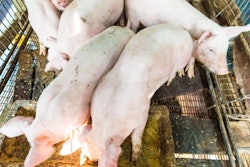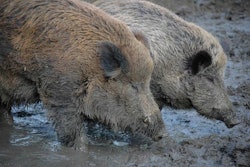
Charitable foundation gives $5.5 million to The Pirbright Institute to research new livestock vaccines
The Bill & Melinda Gates Foundation is the latest organization to join the fight against African swine fever (ASF) and other foreign animal diseases humanity remains unable to cure.
The Pirbright Institute has received $5.5 million from the Gates Foundation to establish an international Livestock Antibody Hub, which will specialize in research aimed at developing the new technologies they believe will result in the next generation of livestock vaccines.
“The concept of Pirbright’s Livestock Antibody Hub is a direct response to the recent, largely technology driven advances in our understanding of protective immune responses against infectious diseases,” Nick Juleff, a senior program officer in the Gates Foundation’s Agricultural Development program, said in a statement. “Through the Hub, we aim to drive research for the treatment and prevention of zoonotic and neglected infectious diseases of livestock.”
The Hub’s initial aim, according to project lead John Hammond, will be studying exactly how vaccines protect livestock from viral diseases.
“Almost all vaccines rely on driving a strong antibody response,” Hammond said. For 45 years, The Pirbright Institute has worked to understand “the really fine details of that response.”
There is growing understanding, Hammond said, that the immune response triggered by a vaccine can vary widely depending on the pathogen and species involved. Understanding exactly how those mechanisms work, he said, will enable scientists to understand why one vaccine is protective, while another is not.
Once the Hub understands how these various mechanisms work, Hammond believes they can be used to develop second-generation vaccines that target difficult viruses such as African swine fever. Future vaccines may use different kinds of particles, rather than deactivated viruses, to direct antibodies to a specific part of the animal, for example. In the far-distant future, Hammond said, genetic engineering may enable producers to breed animals with protective antibodies encoded into the animal’s DNA.
These innovations could dramatically reduce the cost associated with vaccination, which remains an impediment to animal welfare, particularly in the developing world.
The hub will also work in a collaborative way with researchers around the world, Hammond said, to “support rational livestock disease control strategies where the expertise already exists.”
View our continuing coverage of the African swine fever outbreak.


















